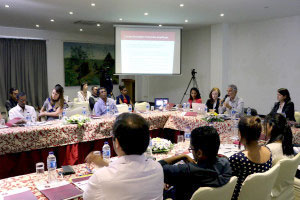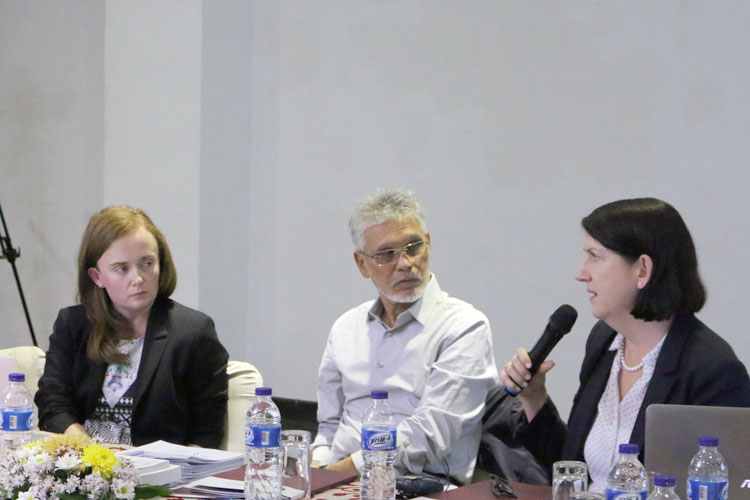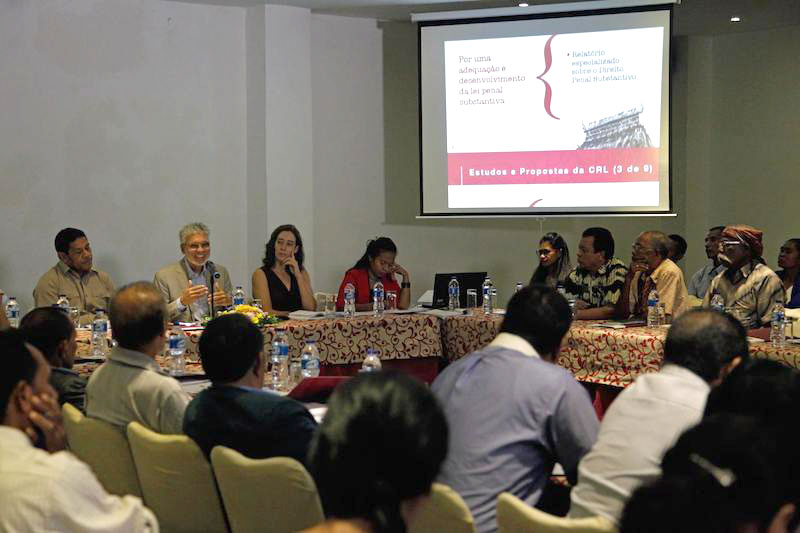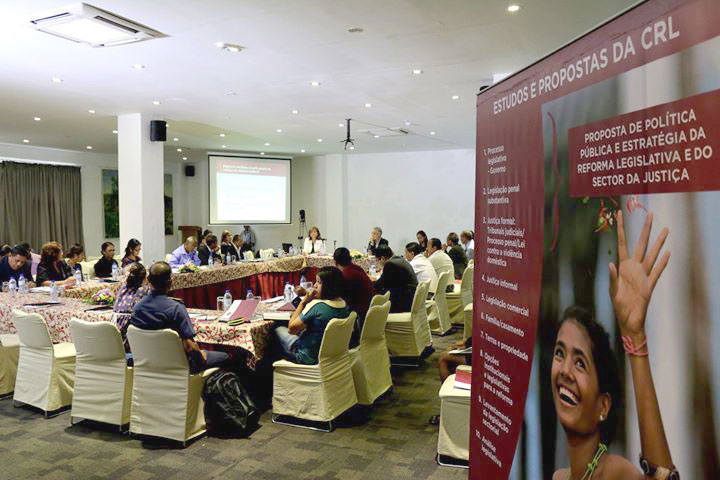 During the last week of June a round of discussions was organized by the Legislative Reform and Justice Sector Commission (CRL) where the main conclusions of a diagnosis on commercial Law and on conflict resolution through formal and informal justice were presented. The diagnosis was produced after a wide ranging investigation and consultations with Justice Sector institutions, and local, community and traditional administrative entities.
During the last week of June a round of discussions was organized by the Legislative Reform and Justice Sector Commission (CRL) where the main conclusions of a diagnosis on commercial Law and on conflict resolution through formal and informal justice were presented. The diagnosis was produced after a wide ranging investigation and consultations with Justice Sector institutions, and local, community and traditional administrative entities.
“A Reform Proposal for Commercial Law in Timor-Leste” was the theme of the first session, held on June 22nd. President Jorge Graça and Legal Adviser Georgie McArthur pointed out the need forcomercial-2 clearer, simpler, fuller, more consistent and, consequently, more practical conclusions and recommendations for entrepreneurs in Timor-Leste dealing with matters such as the company and the commercial register, traders’ general obligations, commercial contracts, managers’ duties and commercial companies. Professor Mary Keyes, Deputy Head of Griffith University in Australia, addressed commercial contracts from a comparative perspective.

On the 27th of June a session was conducted on “A policy of conflict resolution centred on society – informal Justice”. Researchers from the Centre for Social Studies of the University of Coimbra (CES) and CRL technicians presented empirical data resulting from the CRL investigations. University professors attended the first debate panel on “Conflict resolution within the Timorese society: socio-anthropological, historical and political perspectives”.

Representatives of Civil Society and communities attended the second panel and discussed “Cultural, economic and geographical proximity Justice – what challenges and opportunities?” Representatives of Government institutions and of the judicial sector attended the third and final panel of the day, “The role of the Timorese State in conflict resolution and mediation: present and future”.
On the 28th and the 29th of June the discussions concerned the theme “For a policy of conflict resolution centred on society – Formal Justice”, where the main empirical data resulting from the current research by the CRL was presented. Conclusions and recommendations were presented regarding the quality and efficiency of judicial bodies, judicial mapping and organization, administration and management of the judiciary system, recruitment and training, Criminal justice, criminal procedure, access to the Law and to the courts, and the preliminary assessment of the enforcement of the Law against Domestic Violence.
In July, the CRL will hold technical meetings on the reforms of the Legislative Process at Government level, and on the Civil Code on matrimonial, and land and property matters (socio-juridical study on legislation).

During its period of office, the CRL has already received input from more than 800 individuals and organizations, and is completing 11 studies and proposals: Legislative process – Government;formal-1 legislation on substantive criminal law; formal Justice: Judicial Tribunals, criminal procedural law, Law against Domestic Violence; informal Justice; Commercial legislation; family / marriage; land and property; institutional and legislative options for reform; gathering of sectoral legislation; legislative analysis; Legislative Reform and the Justice Sector public policy proposal and strategy.
The meetings conducted in June brought together experts from the area of ??Justice, Government representatives, officials from the Anti-Corruption Commission (CAC), courts, scholars, civil society, banking institutions, businessmen and lawyers.
Photos available at: http://timor-leste.gov.tl/?p=18330&n=1&lang=en
